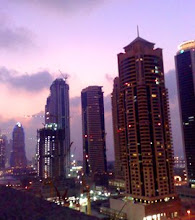The cost of a barrel of oil is currently topping $130. There is now no shortage of experts who says $200 is on the horizon, claiming new supplies can’t (and won’t) ever match runaway demand. If it’s not $200, then most experts will agree that the era of cheap oil is over. It is an easy line to trip out, but what will it mean?
The impact could be huge, but here are a couple of points. Your thoughts are welcome.
Firstly, the world may just get a little more local as transport costs head north. It will be more expensive to ship people, food and goods; greater expense is usually a deterrent.
If travel costs double, discretionary travel is sure to take a hit. Holidaymakers may chose to holiday closer to home, or off set long haul flights by going to places that offer a cheap cost of living. Those budget airline, weekend city breaks may become a rarity. Worryingly, Emirates has a lot of A380 superjumbos to fill.
The city will need to be more compact, with better public transport links. There will be a clash as demand for city center (or Zone A) office and residential space butts up against the need for less wealthy workers to live near to work. By car, the 80km commute will be expensive.
Ideally, internet connectivity will step into the breach, hooking up businesses around the world. If face to face time is at a premium, business will need to find ways of doing things online. This is not just a question of connection speeds, but of changing the way business uses technology.
Humans are usually pretty good at dealing with sudden changes. Their adaptability is a key. It will be the same for business.


1 comment:
It's less supply & demand than speculation that's pushing oil prices. But yes, the days of cheap oil are in the past.
Maybe bad moves such as building very cheap cars are going to suffer, air travel will maybe go back to being an elitist thing, only for those who can afford it. It's all good for the planet, bad for airlines and places that rely on tourism for revenue.
So a very big rethink will be required.
Better and more efficient public transport, diversification into revenue streams that are not tourism related, affordable housing near city centres for lower paid but vital workers (already a serious consideration for cities around the world), the 'remote office', so long talked about but not much much action on, will become a reality.
A long overdue rethink about the way we operate is being forced on us by oil pices.
Post a Comment